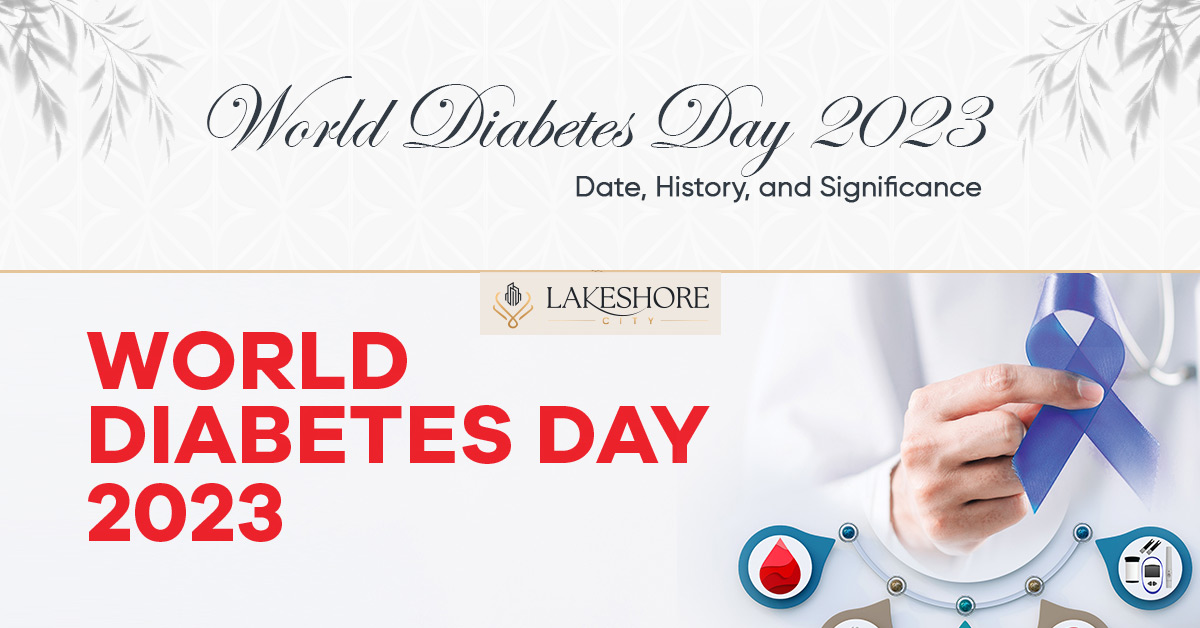Introduction to World Diabetes Day 2023
November 14th is World Diabetes Day, a significant global event that aims to increase awareness of the growing diabetes epidemic. In 2023, the focus will be on early detection and intervention, emphasizing the importance of education regarding the disease’s complex nature, possible complications, and preventive measures. This yearly event is more than just a symbol; it’s a deliberate attempt to spread necessary knowledge, promote healthy lifestyle choices, and assist individuals with diabetes.

Diabetes is a chronic illness that affects millions of people worldwide. It is characterized by elevated blood sugar levels brought on by problems with insulin. November 14th is a day to draw attention to the growing number of people who have diabetes and its significant effects on both individuals and society. It acts as a spark for proactive actions, support networks, and educational programs that enable people to manage and prevent diabetes effectively. World Diabetes Day is a global reminder of how urgent we all work together to address this health issue.
The Global Impact of Diabetes
Diabetes affects people of all socioeconomic backgrounds and across continents, making it a serious global health concern. Type 1 and type 2 diabetes cases are steadily increasing, and this has significant effects on healthcare systems, economies, and personal lives. Rich countries struggle to control the rising number of diabetes cases, and impoverished communities struggle to get access to quality medical care. Reducing these disparities requires a multimodal strategy that includes global preventive measures, enhanced healthcare access, and public health initiatives.
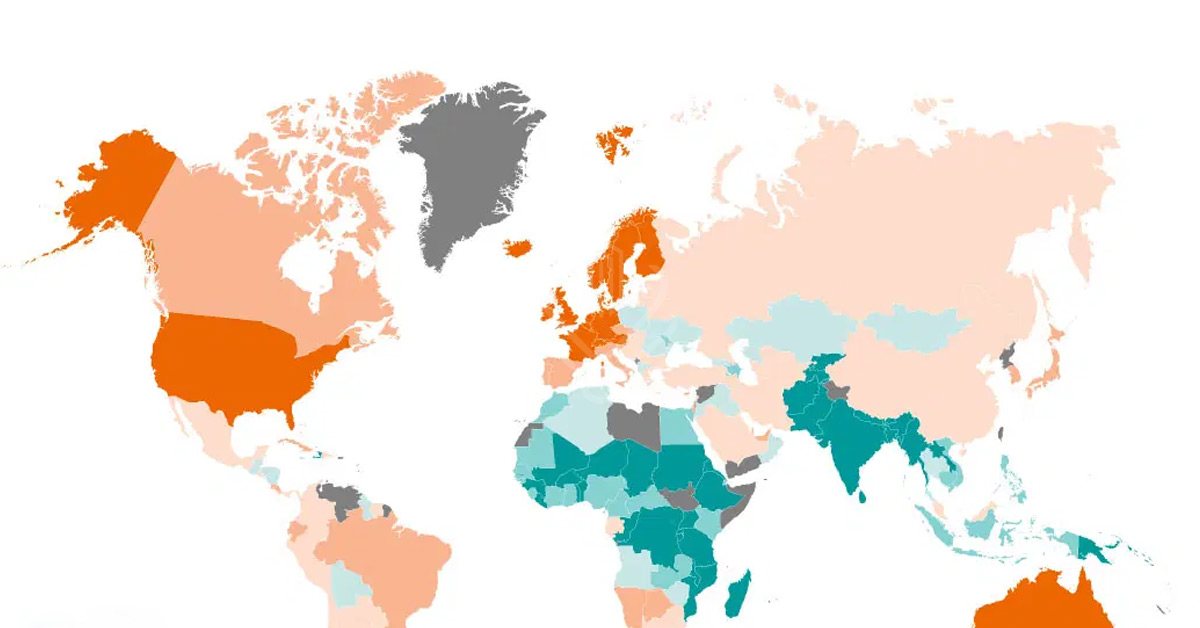
Diabetes has an influence not only on health but also on the social and economic spheres. Healthcare systems are heavily burdened by the disease, which strains finances and resources. Moreover, diabetes has enormous social and psychological ramifications since it adversely impacts people’s quality of life and overall well-being, as well as that of their families. As a result, combating diabetes requires pharmaceutical interventions and comprehensive approaches that address social determinants and inequalities in healthcare access among various populations worldwide.
Embracing Prevention and Awareness of Diabetes Day 2023
The key to slowing the rise of diabetes is prevention. Promoting healthy lifestyle choices—like giving up smoking, eating a balanced diet, and exercising frequently is essential to preventing type 2 diabetes, which accounts for the majority of diabetes cases worldwide. Early detection via tests and screenings is necessary for efficient management and prompt intervention, which lowers the likelihood of complications.
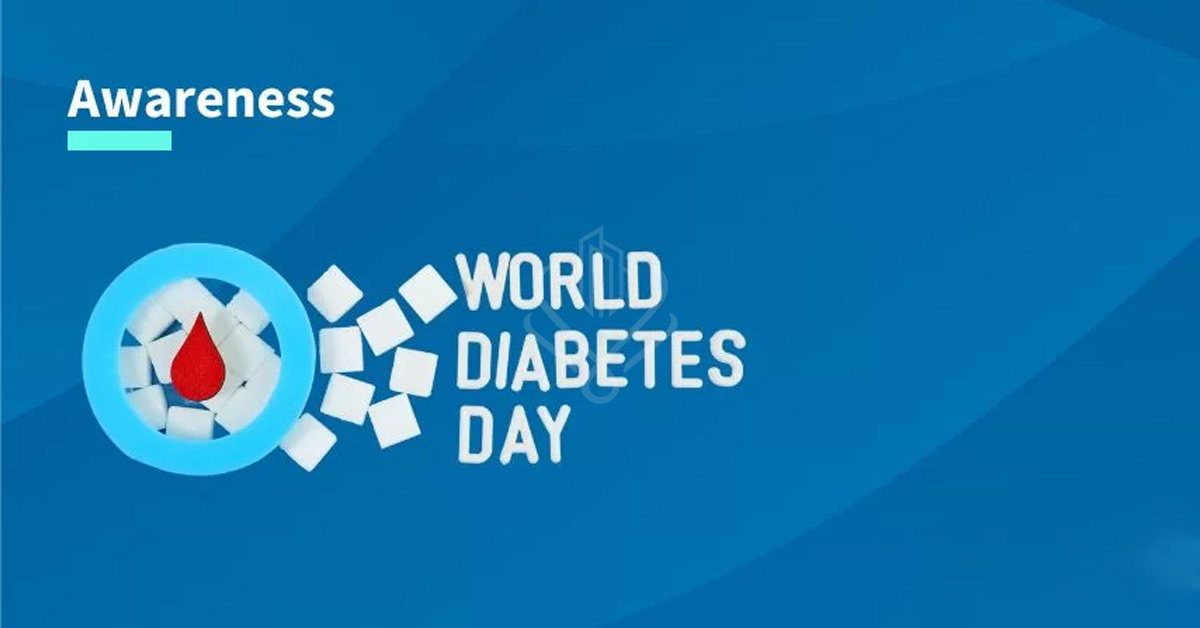
To influence individual behaviors and societal attitudes, it is imperative to increase awareness of diabetes, its risk factors, and preventive measures. Public awareness campaigns, community involvement initiatives, and educational programs all help to educate people about the complex nature of diabetes. Giving people thorough knowledge encourages proactive health management and dramatically lowers the incidence of diabetes. Additionally, incorporating diabetes education into curricula at schools and places of employment further emphasizes the value of healthy lifestyle choices and preventive measures from a young age, preparing the next generation to battle the illness.
Technology’s Role in Diabetes Day 2023
Diabetes treatment has undergone a technological revolution thanks to the development of cutting-edge instruments and equipment for efficient management. The management of diabetes has changed significantly as a result of the development of continuous glucose monitoring systems, insulin pumps, smart insulin pens, and smartphone applications. With the help of these developments, people can now monitor their blood sugar levels more precisely and choose their treatment plans with knowledge thanks to real-time data and personalized insights.

Artificial intelligence (AI) and machine learning are significant advancements in treating diabetes. Large-scale data is analyzed by AI-driven algorithms, which provide predictive insights into glucose trends and possible complications. These tools enable people to take proactive care of their conditions and support treatment decisions. Furthermore, the development of remote monitoring technologies and telemedicine has made it easier for people with diabetes to access medical professionals providing ongoing support and care.
Addressing Stigma and Mental Health for Diabetes Day 2023
Diabetes not only has physical effects but also frequently results in emotional difficulties and social stigma. Stereotypes and misconceptions in society can result in discrimination, which has a severe negative effect on the mental health and general well-being of people who have the condition. Educating people about the stigma associated with diabetes is essential to building empathy and understanding in local communities. Dispelling myths and educating the public about the realities of diabetes through advocacy work is critical in lowering stigma and fostering acceptance.
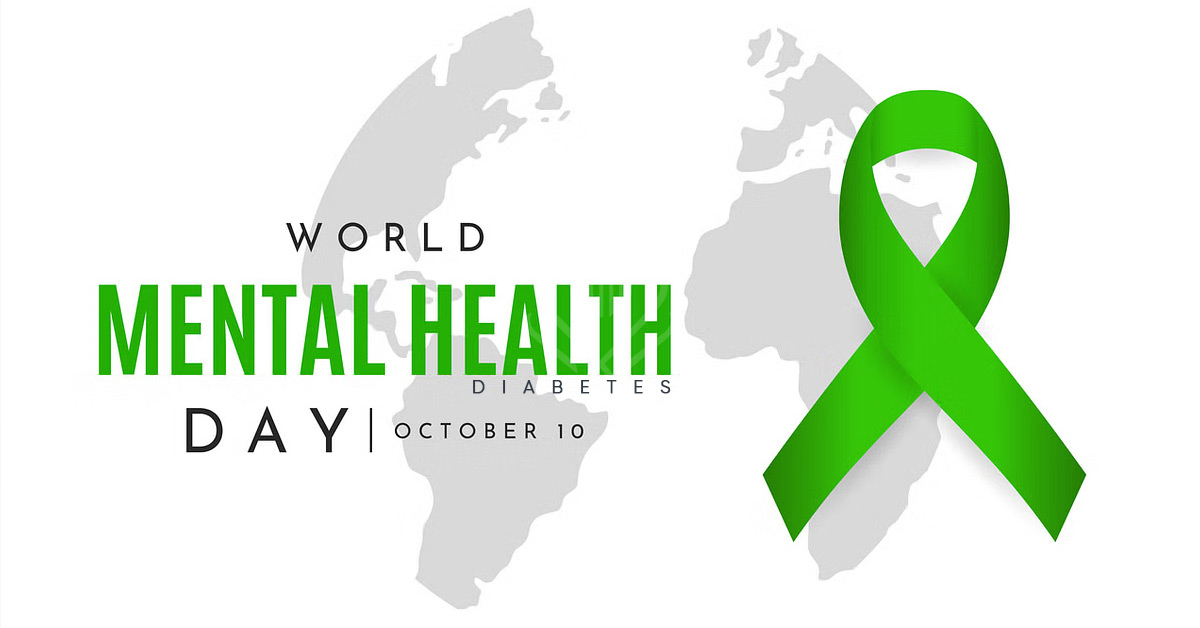
Complementary mental health care must be provided to manage diabetes holistically. It is impossible to undervalue the emotional toll that having a chronic illness takes. A vital source of emotional support is provided by mental health resources, support groups, and counseling services specifically designed for people with diabetes. In addition, incorporating mental health services into standard diabetes care guarantees all-encompassing assistance for people, improving their general quality of life.
Diabetes in Children and Young Adults
There are particular difficulties because children and young adults are more likely to have diabetes. During early life, managing diabetes has an impact on many aspects of life, such as education, social interactions, and emotional health. To effectively support this demographic, tailored care plans that consider psychosocial needs and developmental stages are essential.

Communities and educational institutions are essential in fostering environments that support young people with diabetes. By implementing diabetes management programs, academic institutions can guarantee that students receive the support and accommodations they need to manage their condition and continue their studies. Furthermore, creating inclusive social environments and peer support networks assists young people with diabetes in overcoming the emotional difficulties related to their illness.
Community Engagement and Support for Diabetes Day 2023
Communities are essential in creating an environment that supports people with diabetes. For those impacted by the illness, peer support groups, community health centers, and grassroots initiatives provide priceless resources, educational opportunities, and emotional support.
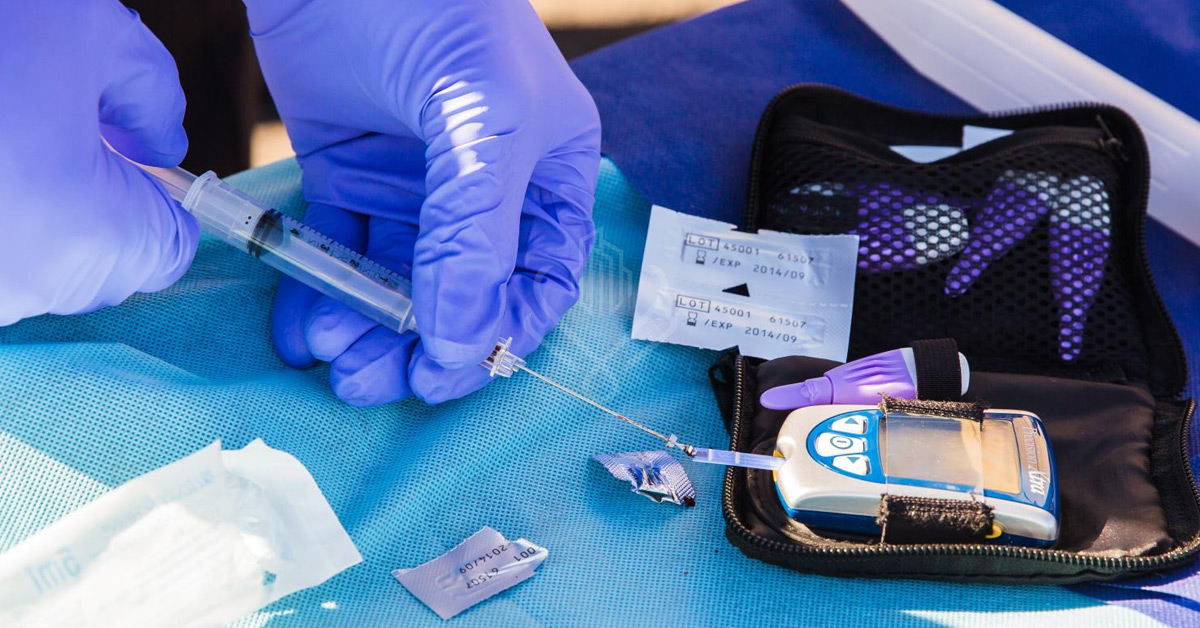
Activating communities via focused awareness campaigns and health promotion programs promotes empowerment and cohesion. These initiatives seek to close knowledge gaps, debunk misconceptions, and promote an accepting environment for people with diabetes. Establishing welcoming environments where people can ask for help, access resources, and share experiences makes a big difference in their well-being and capacity to manage their condition correctly.
Advocacy and Policy Initiatives
To combat the diabetes epidemic, advocacy campaigns and legislative changes are essential. Advocates put forth endless efforts to change healthcare laws so that everyone has fair access to low-cost care, prescription drugs, and supportive settings for managing their diabetes.
Successful advocacy campaigns have resulted in measurable enhancements to healthcare systems, augmented funding for research, and the adoption of policies that give precedence to the prevention and management of diabetes. Ongoing advocacy efforts help to create policies that prioritize public health, assist those living with diabetes, and remove structural obstacles to accessing healthcare.
Research and Future Directions
Diabetes research is still going strong, helping us understand the condition better and opening the door to new management approaches and treatments. Advances in cellular biology, genetics, and therapy systems could potentially enhance the prognosis and standard of living for people with diabetes.
Research on genetic predispositions to diabetes and the application of personalized medicine can help develop customized therapies based on a patient’s unique genetic profile. Targeted therapies and gene editing technologies have the potential to address specific genetic factors that contribute to diabetes, potentially revolutionizing future treatment approaches.
Furthermore, research endeavors continue to concentrate on lifestyle interventions and preventive strategies. Research assessing the effects of nutrition, physical activity, and behavioral changes on preventing and managing diabetes provides essential information about practical treatments. Further hope for more efficient and effective treatment options comes from ongoing clinical trials investigating new drugs, cutting-edge insulin delivery systems, and artificial pancreas technologies.
Taking Action Beyond World Diabetes Day
Although World Diabetes Day is observed annually, its significance goes beyond a single day. To effectively combat the diabetes epidemic, year-round efforts are essential. Beyond this official day of awareness, people, communities, healthcare professionals, and legislators all have critical roles in promoting change and having a long-lasting effect.
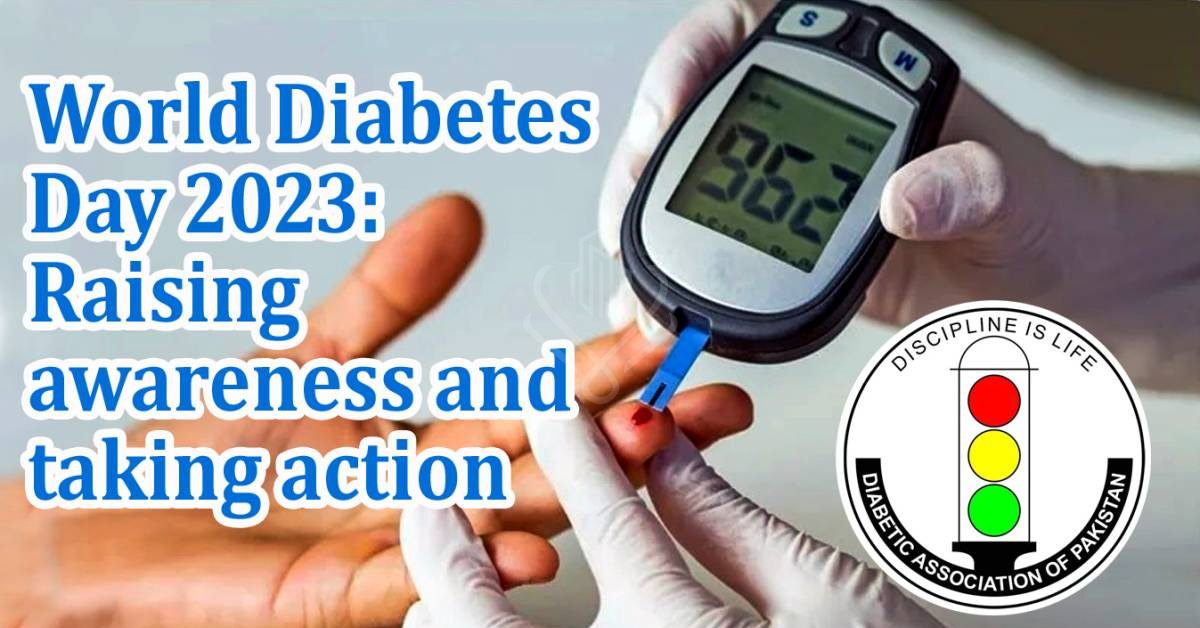
Ongoing commitments include promoting healthier environments, aiding with diabetes education and awareness campaigns, participating in research fundraising events, and creating inclusive communities for individuals with diabetes. Furthermore, it is still crucial to support legislative initiatives that put the needs of the general public, fair access to healthcare, and sufficient funding for diabetes management first.
Going above and beyond On World Diabetes Day, people participate actively and work together to promote policy changes, build support networks, increase public awareness, and fund research projects. Individuals and communities can make tremendous progress toward a future where diabetes is better understood, prevented, and effectively managed by coming together in a shared commitment.
Conclusion
In commemorating World Diabetes Day 2023, a profound call to action reverberates globally. This day is more than a symbolic acknowledgment; it represents a collective commitment to combat the diabetes epidemic. Through increased awareness, proactive prevention strategies, technological advancements, advocacy, and research endeavors, strides are being made toward a future where diabetes is met with understanding, prevented through informed choices, and managed with empowered resilience.
Beyond the designated day, the sustained efforts of individuals, communities, healthcare providers, and policymakers remain pivotal in shaping a world where the impact of diabetes is minimized and the quality of life for those affected is maximized. By uniting in purpose, fostering support networks, and advocating for systemic changes, the journey beyond World Diabetes Day propels us toward a future where the burden of diabetes is lighter and opportunities for wellness are abundant.
FAQs
Q1: What is the significance of World Diabetes Day?
A1: World Diabetes Day, observed annually on November 14th, serves as a global platform to raise awareness about diabetes. It’s a moment to educate, advocate for better care, and support those affected by the disease.
Q2: What is the theme for World Diabetes Day 2023?
A2: The theme for World Diabetes Day 2023 revolves around the critical importance of early detection and intervention, emphasizing education about the disease, potential complications, and preventive strategies.
Q3: How does diabetes impact global healthcare systems?
A3: Diabetes has far-reaching effects, impacting healthcare systems, economies, and individual lives globally. The increasing prevalence of diabetes strains healthcare resources and budgets, demanding multifaceted approaches for effective management.
Q4: What role does technology play in diabetes management?
A4: Technological advancements, including continuous glucose monitoring systems, smart devices, and AI-driven solutions, have revolutionized diabetes care. These tools offer real-time data, personalized insights, and improved treatment options for individuals with diabetes.
Q5: How does stigma affect individuals living with diabetes?
A5: Stigma and misconceptions surrounding diabetes can lead to discrimination, impacting the mental health and well-being of those affected. Raising awareness and fostering understanding are crucial in reducing stigma and supporting emotional well-being.
Q6: Why is early detection important in diabetes management?
A6: Early detection allows for timely intervention, reducing the risk of complications and enabling individuals to manage their condition more effectively. Screenings and tests help in the early identification of diabetes or prediabetes.
Q7: How can communities support individuals with diabetes?
A7: Communities are vital in providing support through peer groups, educational programs, and grassroots initiatives. Engaging communities fosters unity, dispels myths, and creates inclusive environments for diabetes patients.
Q8: What advocacy efforts are essential in addressing the diabetes epidemic?
A8: Advocacy is crucial in influencing healthcare policies and ensuring equitable access to treatment and resources. Advocates work towards policy changes prioritizing diabetes prevention, support, and improved healthcare systems.
Q9: How does research contribute to diabetes management?
A9: Ongoing research explores innovative treatments, personalized medicine, and lifestyle interventions. Breakthroughs in genetics, therapies, and technologies offer promising avenues for improving diabetes care and outcomes.
Q10: What steps can individuals take beyond World Diabetes Day?
A10: Individuals can participate in advocacy, support awareness campaigns, promote healthy living, and engage in fundraising efforts. Continuous commitment and collective action beyond World Diabetes Day are crucial in combating the disease effectively.
Our Featured Article:
Read More: World Kindness Day in Pakistan 2023 & Around The World
Don’t miss the chance to invest with Lakeshore! Secure your investment today by investing your financial investment with Lakeshore in the following available options like Lakeshore City, Lakeshore Club, and Lakeshore Farms.
For More updates, please Contact +92 335 7775253 or visit our website https://lakeshorecity.com/
Lakeshore City is the upcoming elite lifestyle at Khanpur Dam. Offering no parallel amenities for the members and owners of distinguished farmhouses.
Become Part of Luxurious Lifestyle
Contact: 0335 7775253


